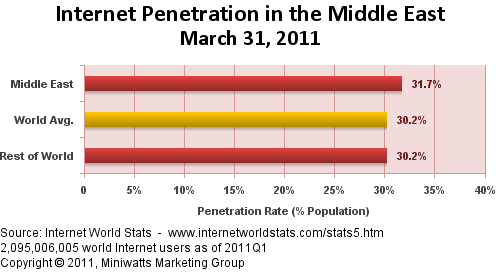All over the Middle East, protesters are taking part in what is known as the “Arab Spring” – a series of demonstrations that argue for government reform in oppressed countries like Egypt, Tunisia, Libya, and Yemen. Seen as the spiritual successor to the largely failed “Prague Spring” of 1968 (where the Czech people attempted to remove their country from oppressive Soviet rule), the Arab Spring plays likewise, in the sense of ordinary citizens joining forces with reformist politicians in fighting for change regarding the sociopolitical landscape.

Protesters in Egypt gather under their country's flag in Cairo. Source: TheHindu.com
The reasons for these protests are nothing new; government corruption, human rights violations, censorship, repression, economic stagnancy, poverty, and dictatorship have unfortunately characterized the Middle Eastern image of sociopolitical development for quite some time.
However, this particular round of protests is extremely significant because it is the first time that social media – sites such as Facebook, Twitter, YouTube, and numerous blogging services – have been utilized as a tool to aid protests. Outlined in today’s presentation, social media holds three major advantages: mobilizing protesters rapidly, undermining the legitimacy of a regime, and shedding light on a regime’s atrocities on the world stage. These sites have been used extensively by protesters both abroad and on the ground to disseminate information at a rapid pace, often faster than the speed that legitimate news outlets are able to.
Indeed, growth of social media usage in the Middle East is staggering: the amount of Facebook users has nearly doubled between April 2010 and April 2011, from 14 million to 27 million, while Twitter has reported a gigantic 22,750,000 tweets from 1.15 million users. Internet use among Middle Eastern people is increasing, more so in the younger generations who are far more educated and more likely to push for political reform in their respective countries.

Already, oppressing powers have seen the power of social media and are afraid of the power that it wields regarding the raising of awareness abroad. More than ever, Western countries are made privy to information that would not have been let out of an oppressed nation otherwise. One can only speculate as to what the technology of social media will bring to the Middle East in terms of political reform, but as far as the mobilization and coordination of protests go, it’s a good start.
